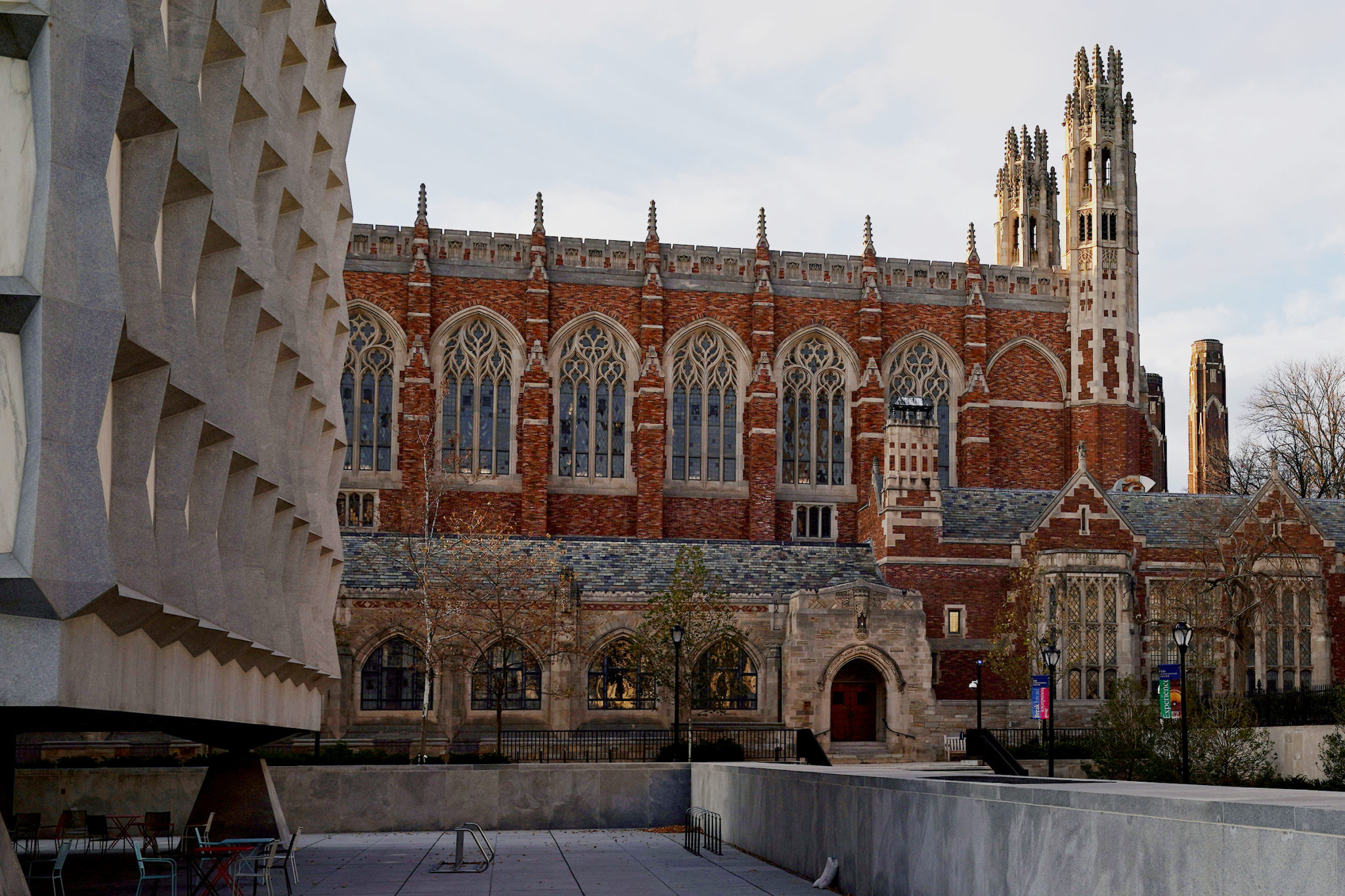Law School clinic wins victory for local news
Yale Law School’s clinic won a case in defense of a local Connecticut news site.

Tim Tai, Staff Photographer
Last month, the Yale Law School’s Media Freedom and Information Access clinic won a case for local journalism in Connecticut.
The Feb. 4 victory came in a defamation lawsuit against the town of New Canaan, a local newspaper called the New Canaanite and the newspaper’s editor, Michael Dinan, among others. The MFIA clinic defended the news site and Dinan against plaintiff Farva Jafri, who sued the paper after its coverage of a town hearing at which she appealed a $30 parking ticket.
“Working on the New Canaanite case was a terrific experience that perfectly
encapsulated the goals of the MFIA clinic and its Local News Initiative,” Daniel Betancourt LAW ’22, a student member of the MFIA clinic, told the News. “Helping Michael Dinan, I got a much stronger sense of what kind of claims are out there and the lengths people will go through to stop journalism they find embarrassing or objectionable. It felt good and gratifying to come to his defense, to vigorously advocate for a small-town reporter who keeps his community aware not just of the politics in Washington but the issues of their own homes.”
The plaintiff filed her complaint last summer. Jafri, a Pakistani-American, alleged that her parking ticket was given for racially motivated reasons, and after officials upheld her ticket, she sued the town of New Canaan for civil rights violations.
Under the same lawsuit, Jafri sued the New Canaanite news site and Dinan for defamation, painting her in a false light and common law assault. The New Canaanite covered her town hearing, and Jafri alleged that the coverage painted her in a negative light. She also alleged that during the hearing, Dinan stood near her with his phone and made her feel intimidated.
Dinan reached out to the MFIA clinic in September, and the clinic subsequently filed a motion to dismiss Jafri’s case. The MFIA clinic argued that Jafri’s claim against the newspaper was not under the jurisdiction of the federal court and that the plaintiff failed to provide enough facts to support her claims.
MFIA Journalism Fellow Stephen Stich LAW ’17 told the News that the plaintiff sued on account of mainly civil rights issues, but on two separate issues — one against the town of New Canaan, and one against the New Canaanite newspaper.
Following MFIA’s motion, the plaintiff amended her complaint, but the judge deemed the new complaint to not be significantly different from the original. Jafri had sued in federal court under federal jurisdiction, and the judge on the case claimed that this could only apply to the town of New Canaan and not to the New Canaanite and Dinan. The United States District Court for the District of Connecticut held that, for MFIA’s clients, the case was not alleged on proper grounds for the court to exercise jurisdiction.
Currently, the case is still open against the town of New Canaan and the town officials.
Betancourt said the MFIA clinic takes on cases to address the protection of smaller news sites and journalists, thereby filling a gap in journalistic legal needs and allowing local journalists to report freely without fear. He added that many local journalists can feel persuaded to forgo reporting in the face of costly litigation, whether legitimate or baseless. The New Canaanite, he said, was a perfect example of such a case.
Dinan said that it was a “jolt” to be told by those he trusts that regardless of the merits of the case, as the sole proprietor of the New Canaanite, he would be forced to bear the legal costs of the case. The MFIA clinic answered his call for reassurance on how to continue his work.
Dinan explained that a distinction for local news, and why it needs to be protected, is that it is specific to shedding light onto a small community. Local reporters who attend public meetings, respond in-person to breaking news scenes, walk around town and Town Hall, develop sources, learn about a community’s history and then report on all of it.
“Local news offers more autonomy and recognition — actual recognition, not ‘fans’ or ‘followers’ — than any other area of this field,” Dinan said. “I grew up in a small town — in fact, I grew in the town I cover — and personally I never wanted to work for a news outlet covering anything else.”
Members of the MFIA clinic have heralded their defense of Dinan and the New Canaanite as a victory for local journalists everywhere.
“This dismissal is a victory for local journalism in Connecticut,” Alice Longenbach LAW ’23, a student who worked on the case, told the News. “Local news coverage is essential for a healthy democracy, and journalists need to be able to do their jobs without the fear of unnecessary lawsuits. Since local reporters tend to operate with limited resources, it is important for meritless claims to be dismissed before moving to costly litigation.”
The town of New Canaan, CT, had a population of 20,213 in 2018.







